The Intel Skull Canyon NUC6i7KYK mini-PC Review
by Ganesh T S on May 23, 2016 8:00 AM ESTPerformance Metrics - I
The Intel NUC6i7KYK (Skull Canyon) was evaluated using our standard test suite for low power desktops / industrial PCs. Not all benchmarks were processed on all the machines due to updates in our testing procedures. Therefore, the list of PCs in each graph might not be the same. In the first section, we will be looking at SYSmark 2014, as well as some of the Futuremark benchmarks.
BAPCo SYSmark 2014
BAPCo's SYSmark 2014 is an application-based benchmark that uses real-world applications to replay usage patterns of business users in the areas of office productivity, media creation and data/financial analysis. Scores are meant to be compared against a reference desktop (HP ProDesk 600 G1 with a Core i3-4130, 4GB RAM and a 500GB hard drive) that scores 1000 in each of the scenarios. A score of, say, 2000, would imply that the system under test is twice as fast as the reference system.
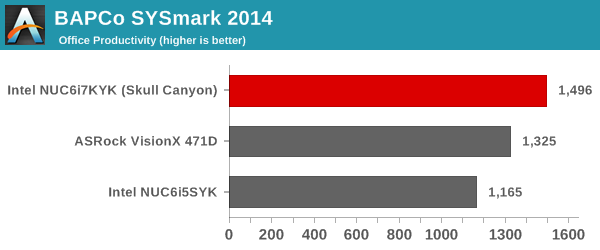
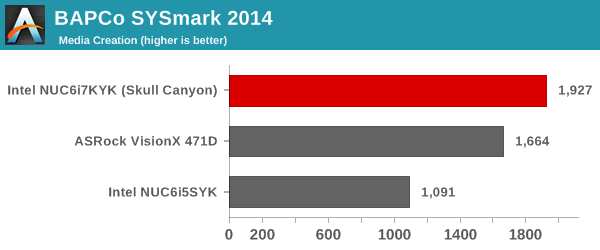
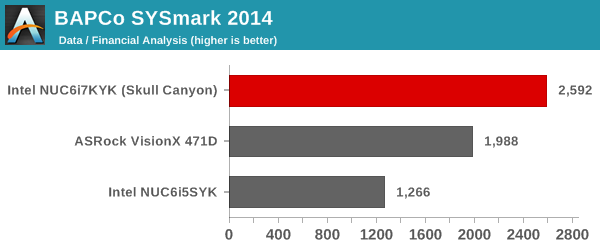
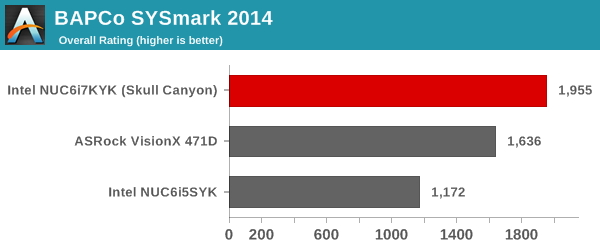
We started using SYSmark 2014 quite recently, which is the main reason for the absence of many of the comparison systems in the above graphs. In any case, the most interesting of the compared lot when it comes to CPU-intensive benchmarks like SYSmark 2014 is the ASRock VisionX 471D, equipped with a Core i7-4712MQ processor. We can see that the Core i7-6770HQ-based Skull Canyon NUC6i7KYK is miles ahead of the other two systems when it comes to office / business workloads. Readers interested in comparing the SYSmark 2014 scores for systems based on other CPUs can peruse the Bench results here.
Futuremark PCMark 8
PCMark 8 provides various usage scenarios (home, creative and work) and offers ways to benchmark both baseline (CPU-only) as well as OpenCL accelerated (CPU + GPU) performance. We benchmarked select PCs for the OpenCL accelerated performance in all three usage scenarios. These scores are heavily influenced by the CPU in the system. As expected, the Core i7-6770HQ enables the NUC6i7KYK to easily come out on top in the charts.
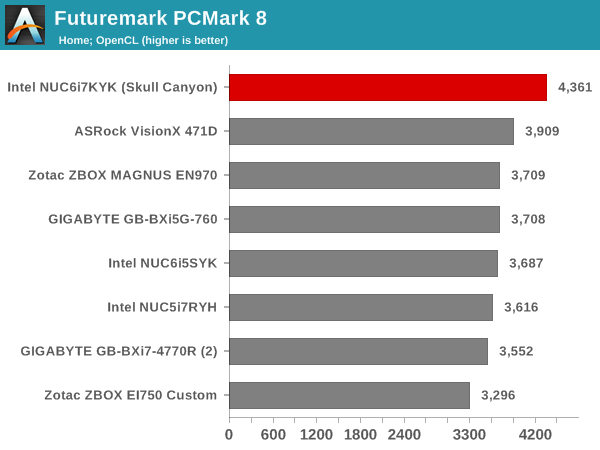
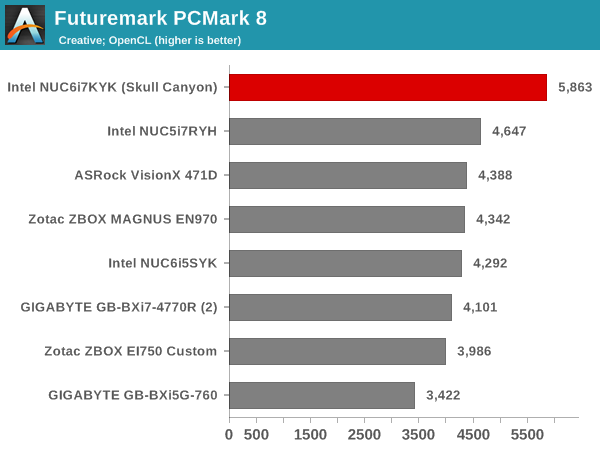
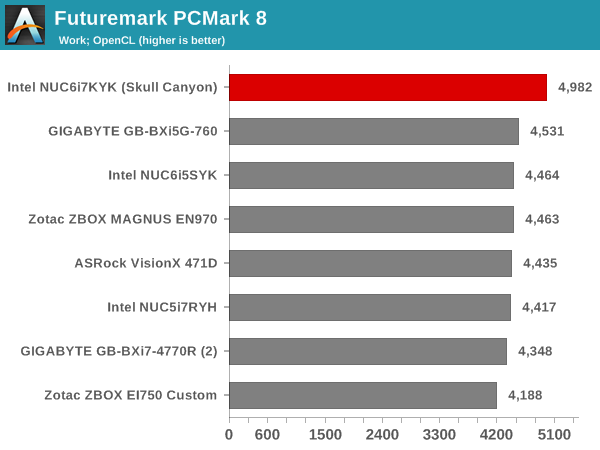
Miscellaneous Futuremark Benchmarks
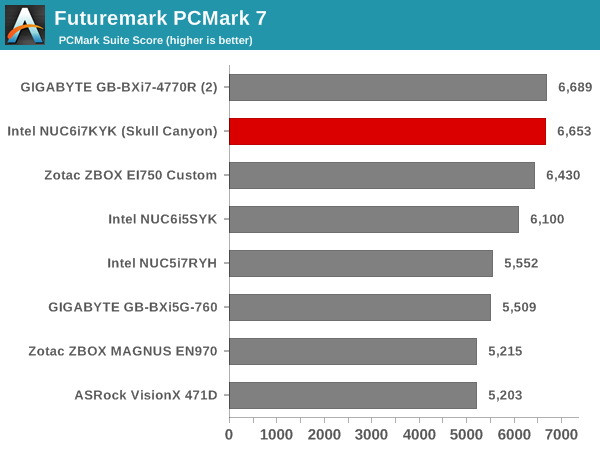
The graphics benchmarks present a different story, though. In these, the NUC6i7KYK does perform well enough to come in the top half. However, in scenarios which are not CPU-bound, the systems equipped with discrete GPUs easily turn out to be better than Skull Canyon.
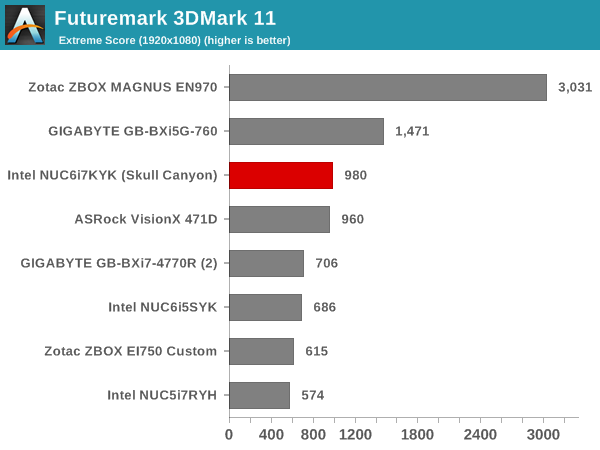
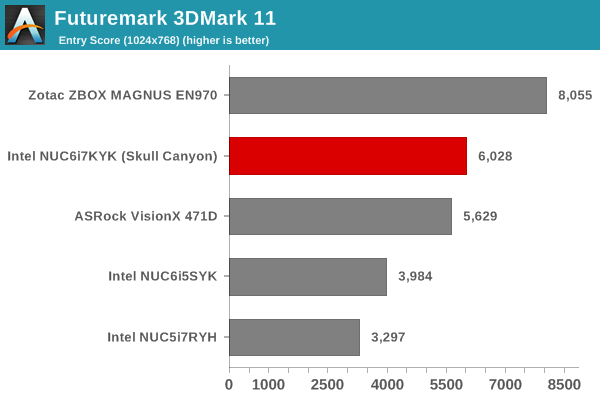
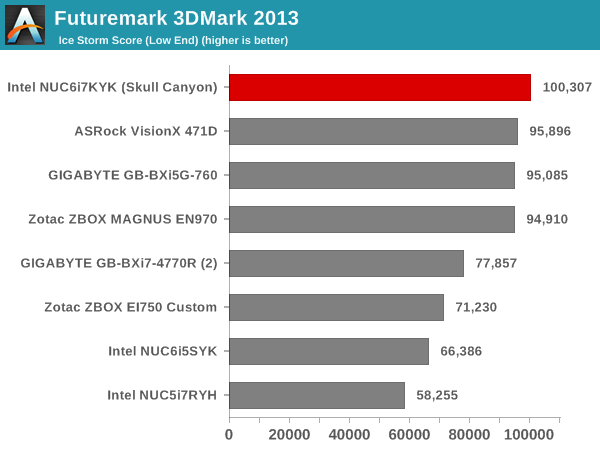
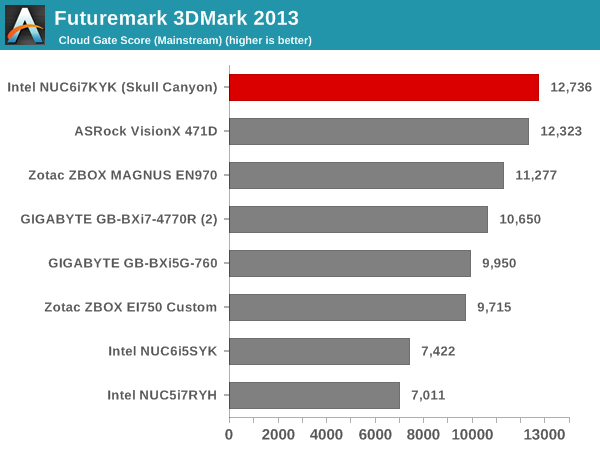
3D Rendering - CINEBENCH R15
CINEBENCH R15 is a standard benchmark for 3D rendering. It provides three benchmark modes - OpenGL, single threaded and multi-threaded. Evaluation of select PCs in all three modes provided us the following results.
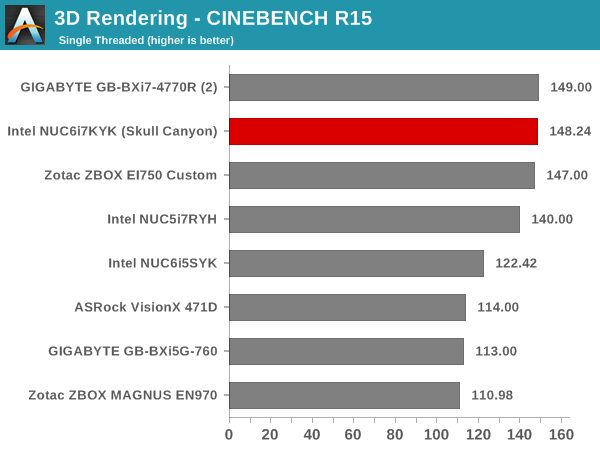
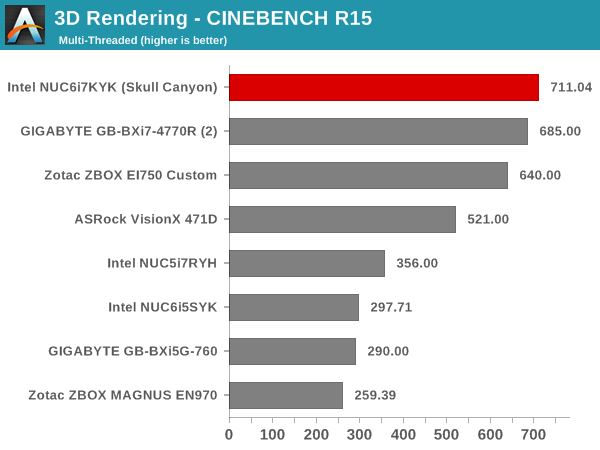
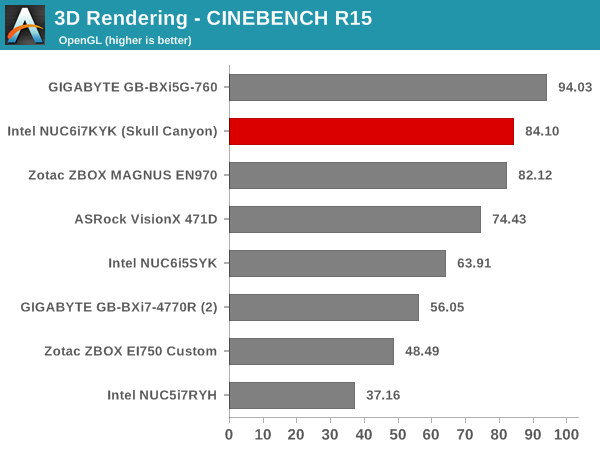
In the single-threaded case, the Core i7-4770R (a 65W TDP CPU which can turbo up to 3.9 GHz) performs slightly better than the Core i7-6770HQ. However, the latter wins out in the multi-threaded cases. In the OpenGL case, the GIGABYTE system with the discrete GPU wins out, showing that a combination of CPU power as well as GPU is needed to perform well in this benchmark.










133 Comments
View All Comments
BiTesterEmailer - Wednesday, July 20, 2016 - link
Interesting article as always.BiTesterEmailer - Thursday, July 21, 2016 - link
.BiTesterEmailer - Thursday, July 21, 2016 - link
.